ORGANISED CRIME SYNDICATE
South Africa ensnared in deadly global web of violence as Israeli criminal underworld spreads its tentacles
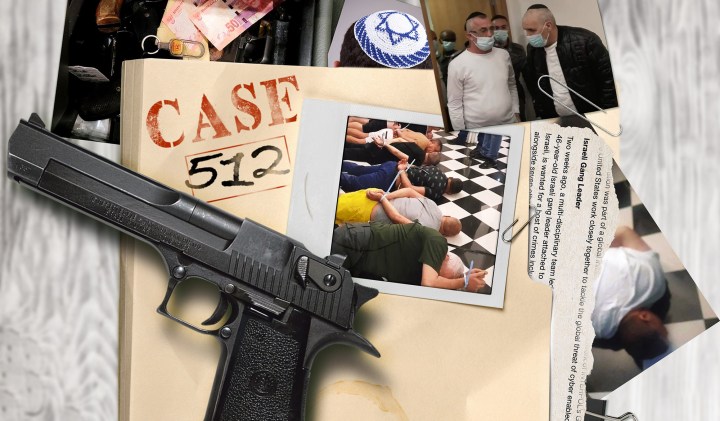
One of Israel’s most wanted crime suspects was arrested in Johannesburg in November. It turns out he is linked to an unprecedented investigation into a globally powerful organised crime syndicate stemming from his home country.
A global web of crime is linked to a group of Israeli mobsters and suspects, some who based themselves in South Africa, ensnaring this country in a decades-old network of violence involving drug trafficking, extortion and bombs used on rivals in gang wars.
Over the years, though there have been some arrests and incidents in South Africa hinting at organised crime links to Israel, a broader picture has not emerged publicly.
DM168 can now reveal just how tightly enmeshed South Africa is in globally powerful Israeli syndicates.
The boss of a notorious Israeli crime family – the Abergil Organisation – was apparently in South Africa about two decades ago, suggesting the syndicate has had ties to this country since back then.
Others linked to it may still be in South Africa.
Case 512
According to a state witness in what is possibly the biggest organised-crime investigation in Israel’s history, known as Case 512, one of that country’s most wanted former fugitives, Yaniv Yossi Ben Simon, allegedly travelled from his base in South Africa to Israel several years ago to help enforce violence against opponents there.
Simon, who is accused of being involved in the Abergil Organisation, is yet to go on trial in connection with such accusations. Along with seven others, he was arrested in Bryanston, Johannesburg, in November last year.
Simon had apparently been living in South Africa since 2007 and became a wanted suspect in 2015, the same year an indictment that forms the core of Case 512 was filed in Israel.
He is implicated in Case 512, which is continuing in that arrests linked to it are still being carried out.
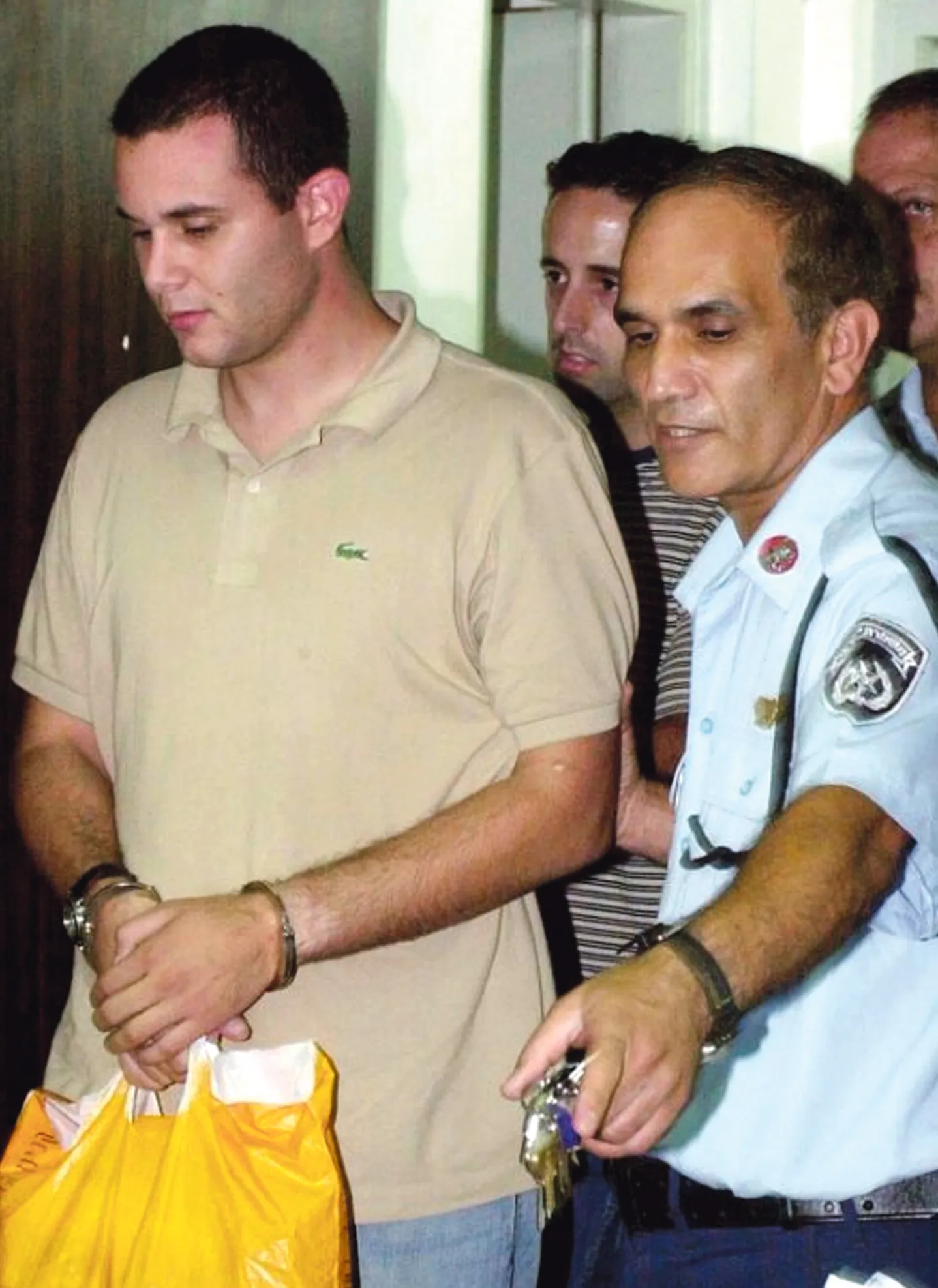
Yaniv Yossi Ben Simon, allegedly travelled from his base in South Africa to Israel several years ago to help enforce violence against opponents there. (Photo: Supplied)
Assault rifles, dollars and drones
During Simon’s arrest in South Africa, a substance thought to be cocaine, firearms including assault rifles, $40,000, drones fitted with cameras, frequency jamming devices, suspected stolen motorbikes and a bakkie with a built-in soundproof compartment were discovered.
In December, national police commissioner Lieutenant-General Fannie Masemola said those seized items “give us an indication that we have broken the back of a syndicate that is most likely linked to criminal underworld activities”.
Other sources in South African policing circles said the items pointed to a syndicate geared to carry out hits. They questioned why it took so long to arrest Simon.
These sources also questioned, more broadly, whether there were dubious links, cultivated during the State Capture years, which coincided with Jacob Zuma’s presidency, between local intelligence operatives and Israeli criminals.
The Man from the South
Simon and his co-accused are expected back in a Gauteng court towards the end of February, and he faces extradition to Israel.
The media was barred from a previous court appearance as part of strict security measures.
Simon is allegedly a close associate of Itzhak Abergil, head of the Abergil Organisation. Abergil was criminally charged in the US in 2008 and in 2012 pleaded guilty to charges including murder, conspiracy to commit extortion and drug importation.
According to a US indictment, he was also known as “the Man from the South” and “the Big Friend”.
A statement on the US Federal Bureau of Investigation website said Abergil “used the power and influence of the Abergil family to conduct criminal activities in Israel and around the world”.
He was later sent from the US back to Israel to serve prison time there. Last year, he was sentenced to another 15 years in jail for murder and drug trafficking.
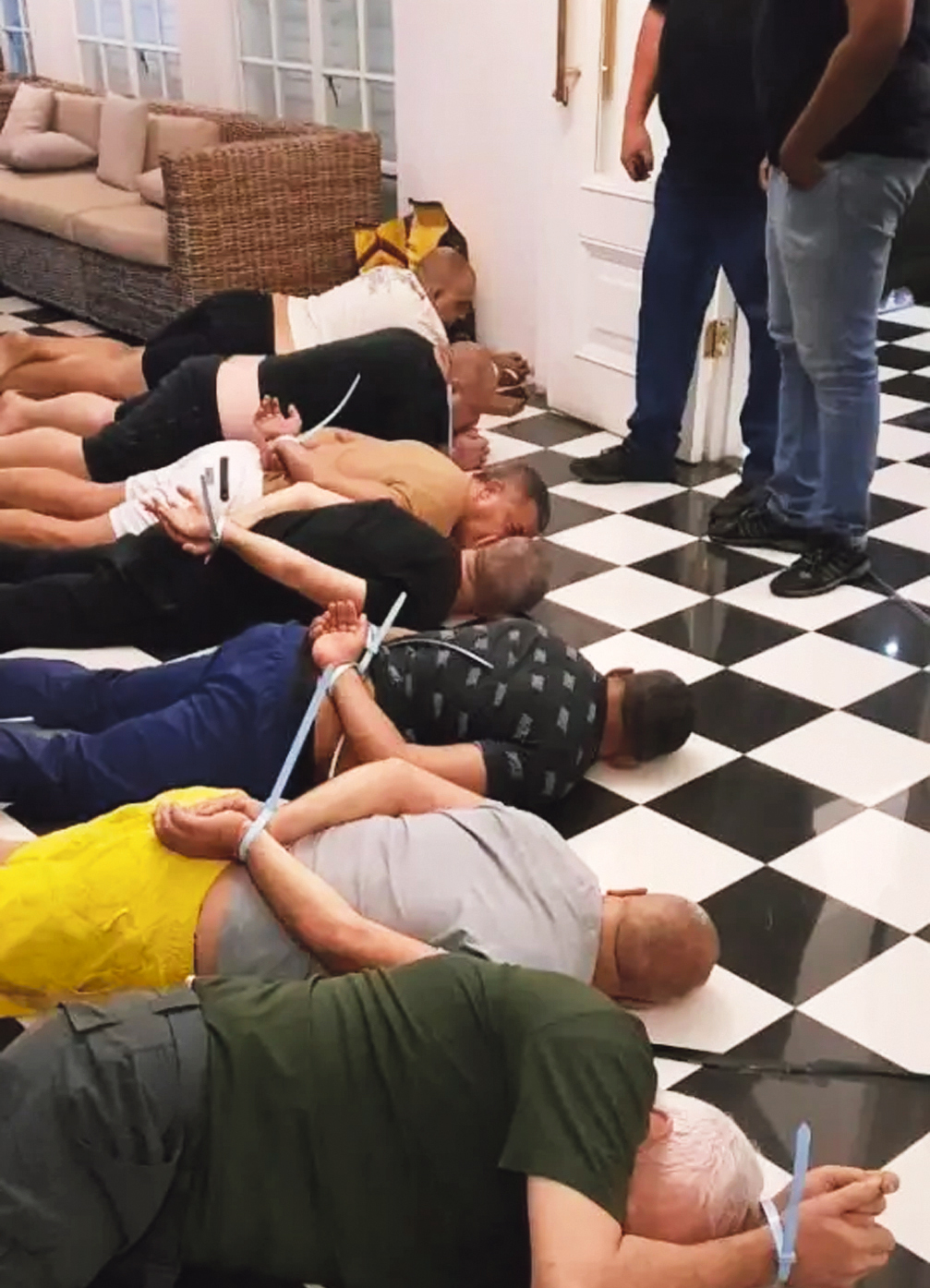
A joint Interpol and South African Police Service task force detained Israeli fugitive Yaniv Yossi Ben Simon and seven associates during an early-morning raid on a house in Bryanston, Johannesburg, South Africa, on 17 November 2022. (Photo: SAPS)
Visit Daily Maverick’s home page for more news, analysis and investigations
‘A man who murders’
Details of Israel’s case against Abergil and several others, and their alleged links to South Africa, are contained in a lengthy 2021 court judgment linked to Case 512. For ease of reference, it will be referred to here as the Case 512 judgment.
It includes input from a state witness who recalled an alleged conversation with an associate (it was not clear when it happened) that suggested links between Abergil, Simon and South Africa.
“After an hour and a half or two hours, Yitzhak [presumably Abergil] arrives with a guy named Yaniv – Yaniv Ben Simon,” the witness had claimed.
“So, at that time, I know that they brought him too from South Africa … Yaniv is known as a man who murders. Murder, they brought him especially for Yitzhak to help him in the war.”
It appeared that “the war” was a reference to a battle the Abergil Organisation was having with rivals.
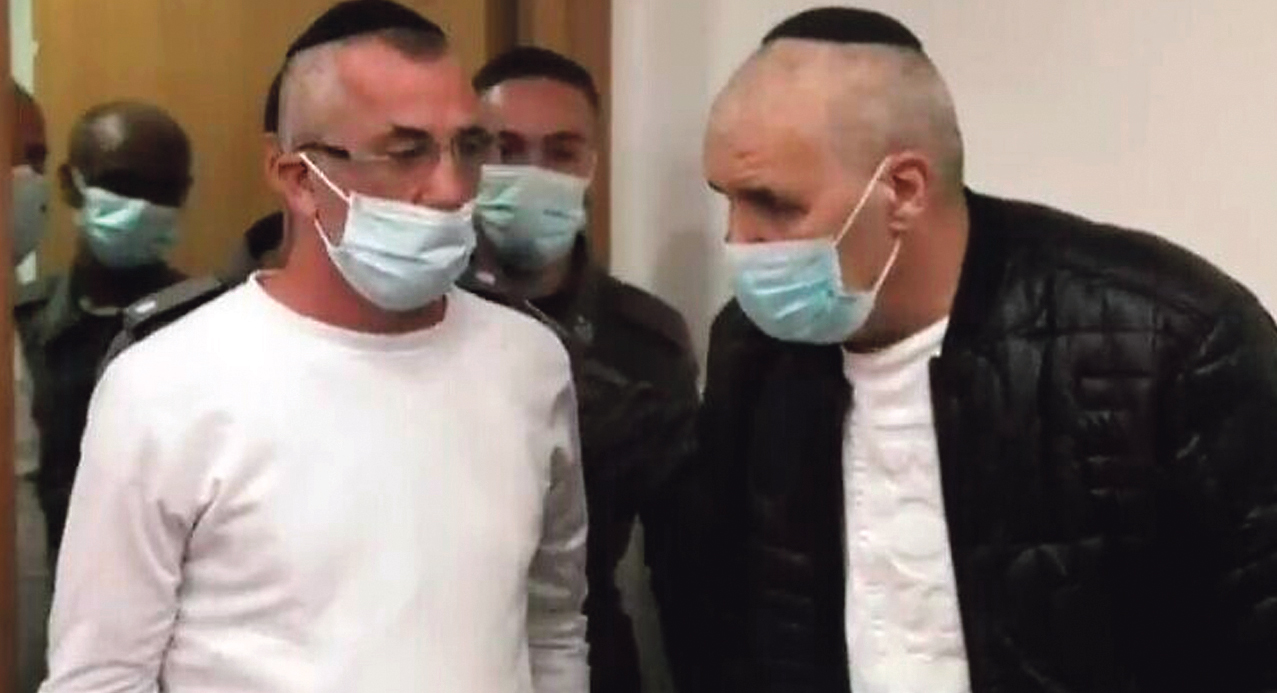
Screen capture from video of Yitzhak Abergil entering a courtroom at the Tel Aviv District Court, 16 November 2021. (Photo: Ynet)
SA and the global web
DM168 can also reveal that: Another witness referred to in the Case 512 judgment claimed that Abergil once told him that Simon was “like a brother to him, and that they were together in South Africa”. The judgment also said Abergil was previously in South Africa and had medical treatment for an ear issue. Backing this is a report in an Israeli news publication that he had travelled to South Africa in 2002 to have ear surgery.
Israeli authorities, based on the judgment, had previously flagged South Africa as one of the countries through which “large quantities of drugs” were being pushed.
The Abergil Organisation was linked to countries including the US, Belgium, Spain, the Netherlands, Morocco, Japan, Australia and Canada. This all points to South Africa being part of the Abergil Organisation’s global operations.
Bombs targeting ‘the wolf’
In terms of Simon, aside from firearm and drug charges stemming from this country, the South African Police Service (SAPS) said he faced attempted murder charges in Israel relating to two bomb blasts carried out there in 2003 and 2004.
The Case 512 judgment explained that around that time there had been plans to assassinate Zeev Rosenstein, a crime boss and rival of the Abergil Organisation.
It said in 2003 an explosive device was planted near Rosenstein’s office in Tel Aviv. It was detonated via remote control and several people were wounded in the explosion.
Among them was Rosenstein, who, according to some Israeli publications, became known as “the wolf with seven lives” because he had survived that many assassination attempts.
The Case 512 judgment said Abergil had masterminded the bomb plot, whereas Simon had allegedly been “in charge of carrying out the plan” and possibly activated the remote control that set off the explosives.
Abergil was convicted in a bombing case in 2021. The same year, Rosenstein was released from jail in Israel following 17 years in prison for drug trafficking.
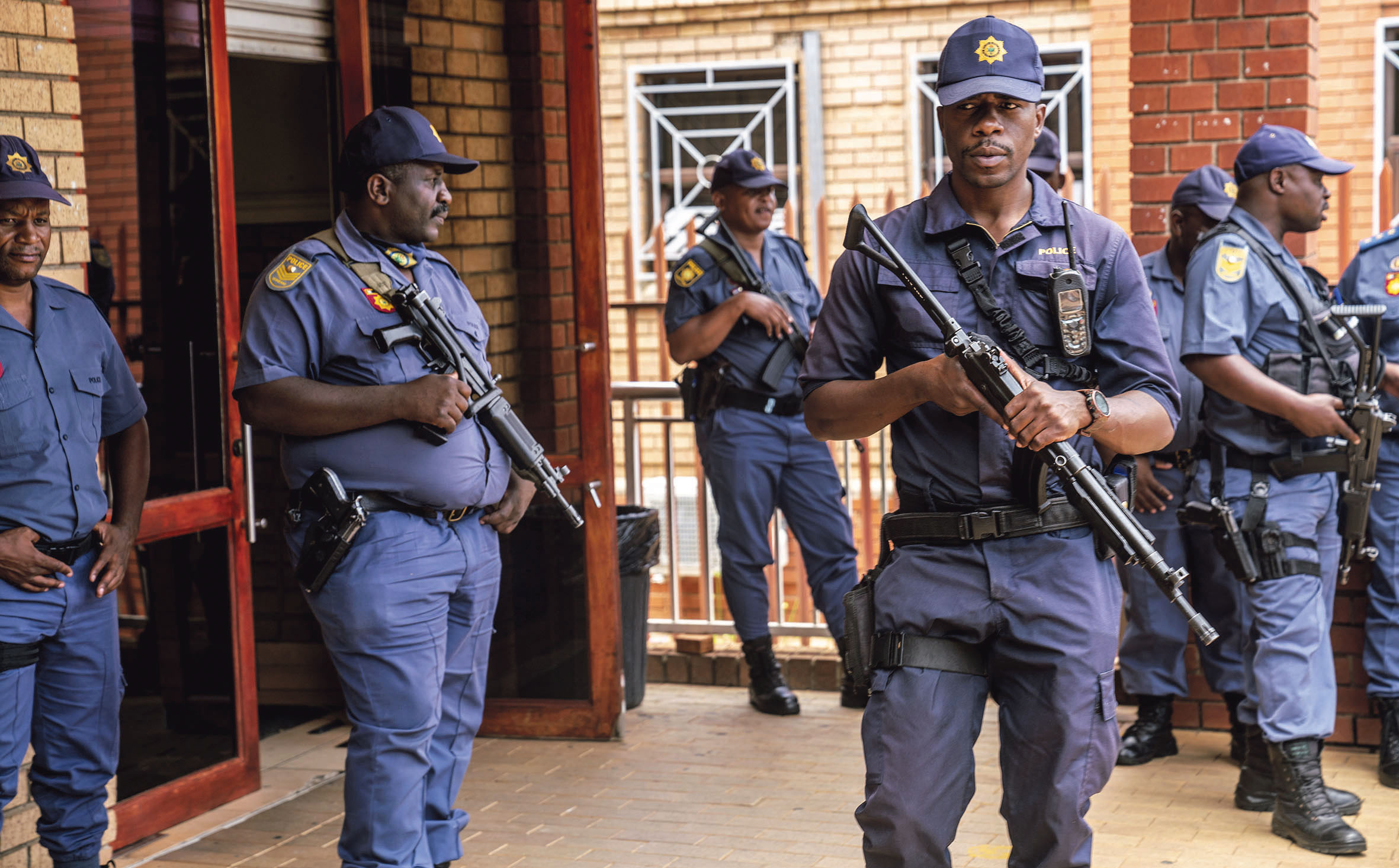
A heavy police presence on 18 November 2022 at the Randburg Magistrates’ Court as Israeli fugitive Yaniv Yossi Ben Simon appears at the start of his extradition. (Photo: Shiraaz Mohamed)
Cocaine on planes
Other sections of the Case 512 judgment referred to an individual named Zion Alon, who was allegedly linked to Abergil Organisation suspects and had a home in South Africa.
A man with the same name is reportedly the father of one Shai Alon. Again, this links to South Africa.
In April 2021, an Israeli government statement announced that Shai Alon, who had left for South Africa back in 2018, was arrested here as part of an investigation involving cocaine being smuggled from Johannesburg to Israel on planes.
The cocaine was concealed in passengers’ carry-on luggage.
Shai Alon’s arrest, the statement said, was owing to long-term cooperation between South African and Israeli authorities.
Though it was not immediately clear what had since happened to Shai Alon, in July last year another accused in the case, Rami Yogev, who had worked as security for Israel’s national airline, El Al, was reportedly sentenced to 12 years in jail.
Assassinations and ‘diamond Champagne’
Suspicions have previously surfaced that certain organised crime suspects in Johannesburg and Cape Town, who may have dodgy police or state security officers backing them, have partnered – or in some cases clashed – with Israeli counterparts over lucrative drug trafficking deals.
After the assassination of Marc Batchelor, a former South African soccer striker who had underworld links, in Johannesburg in July 2019, some reports suggested that relations between him and an Israeli businessman had soured over a debt collection issue.
Meanwhile, there were also suggestions that Israeli suspects had been involved in extortion-style crimes targeting individuals from South Africa and vice versa.
In early 2018, South African policeman Charl Kinnear testified in a court case against Cape Town suspect Nafiz Modack and others that Modack had extorted R200,000 from two Israeli businessmen selling Champagne containing diamonds destined for city clubs.
Modack was acquitted in that extortion case, but he is now an accused in a murder case relating to Kinnear’s assassination in Cape Town in September 2020.
Extortion
In a more recent extortion case, Yossi Mosley, who was based in South Africa and arrested while visiting his home country of Israel in August last year, was indicted there the following month for allegedly trying to force businessmen to be his work partners.
He did so from South Africa.
DM168 has seen the indictment, which accuses him of extortion and harassment – and of having a reputation of being associated with organised crime.
Mosley reportedly entered into a plea agreement in the matter and in December was sentenced to 11 months in jail in Israel. DM168
From Sicily to South Africa – the tangled Mafia web
The arrest of Mafia don Matteo Denaro, who had been on the run for about three decades, raises old Cosa Nostra suspicions in this country.
About two decades before Mafia boss Bernardo Provenzano’s 2016 death in an Italian hospital, there were suspicions stemming from some South African police about who would fill his role as top mobster.
A South African Police Service (SAPS) document from 1997 claimed that a man named Vito Palazzolo, who was in the country at the time, had basically taken over from Provenzano, whose health had taken a knock, and that Palazzolo was viewed as “The Godfather” of the Sicilian Mafia, Cosa Nostra.
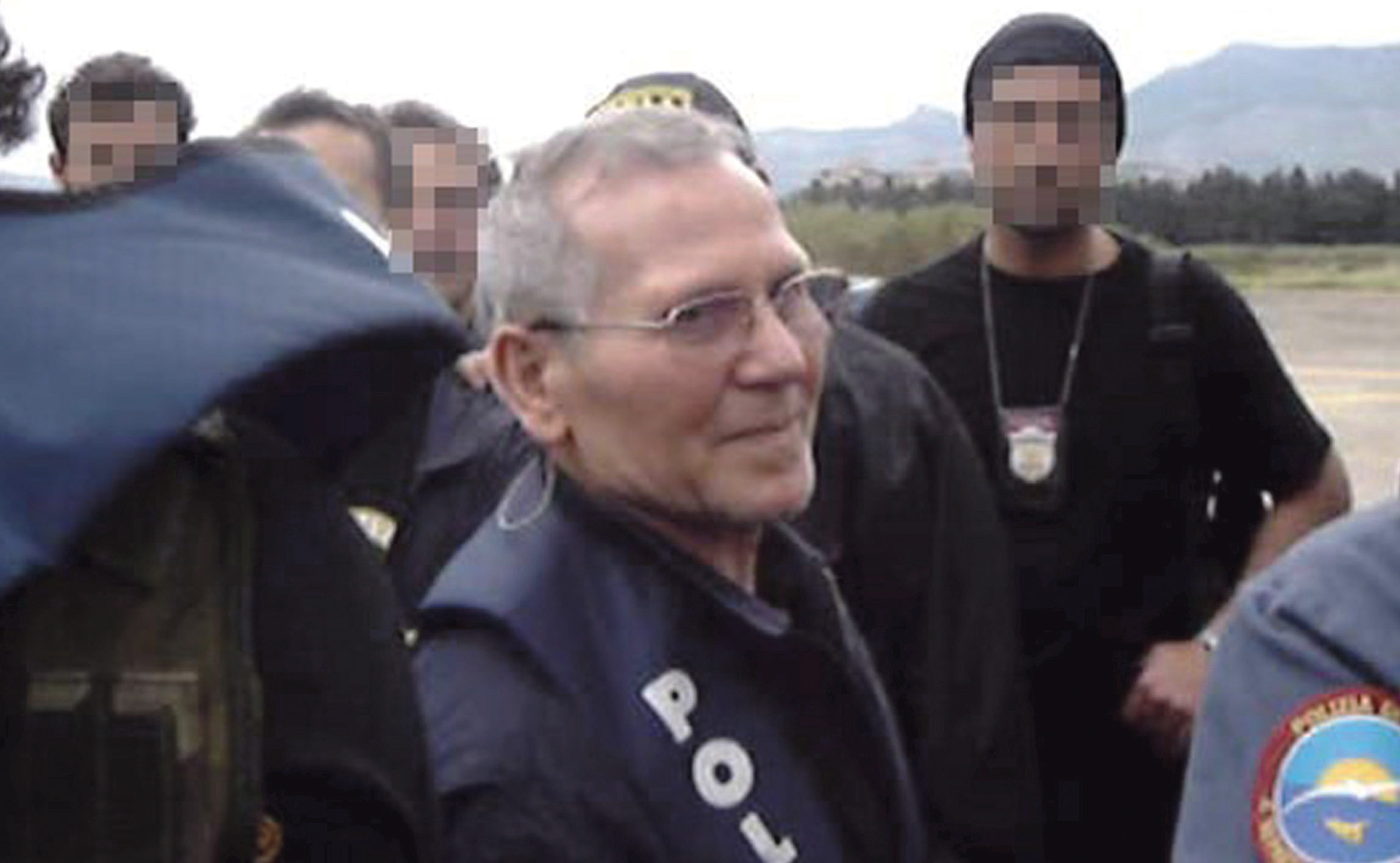
Mafia top boss Bernardo Provenzano is escorted by Italian policemen as he leaves Palermo to be flown out of Sicily and taken to a maximum security prison near Terni, in central Italy, 12 April 2006. Provenzano was arrested near the Sicilian town of Corleone after 43 years on the run. (Photo: EPA / FRANCO LANNINO-MICHELE NACCARI)
V for vendetta (and Vito)
For his part, Palazzolo has never been convicted of anything in South Africa and has always denied criminal involvement.
His stance towards claims against him can be neatly summed up in two sentences from a 2010 Western Cape High Court judgment relating to Italy wanting him sent back there.
These say: “Ever since [Palazzolo’s] arrival in South Africa on 26 December 1986, his relationship with the South African authorities has been troubled.
“In fact, he maintains that, probably because of his undeserved reputation as an influential member of the Italian Mafia, the South African government has for many years waged a vendetta against him.”
Meanwhile, in terms of Cosa Nostra hierarchy, it appears that Matteo Messina Denaro was ultimately the successor to the Mafia group’s throne.
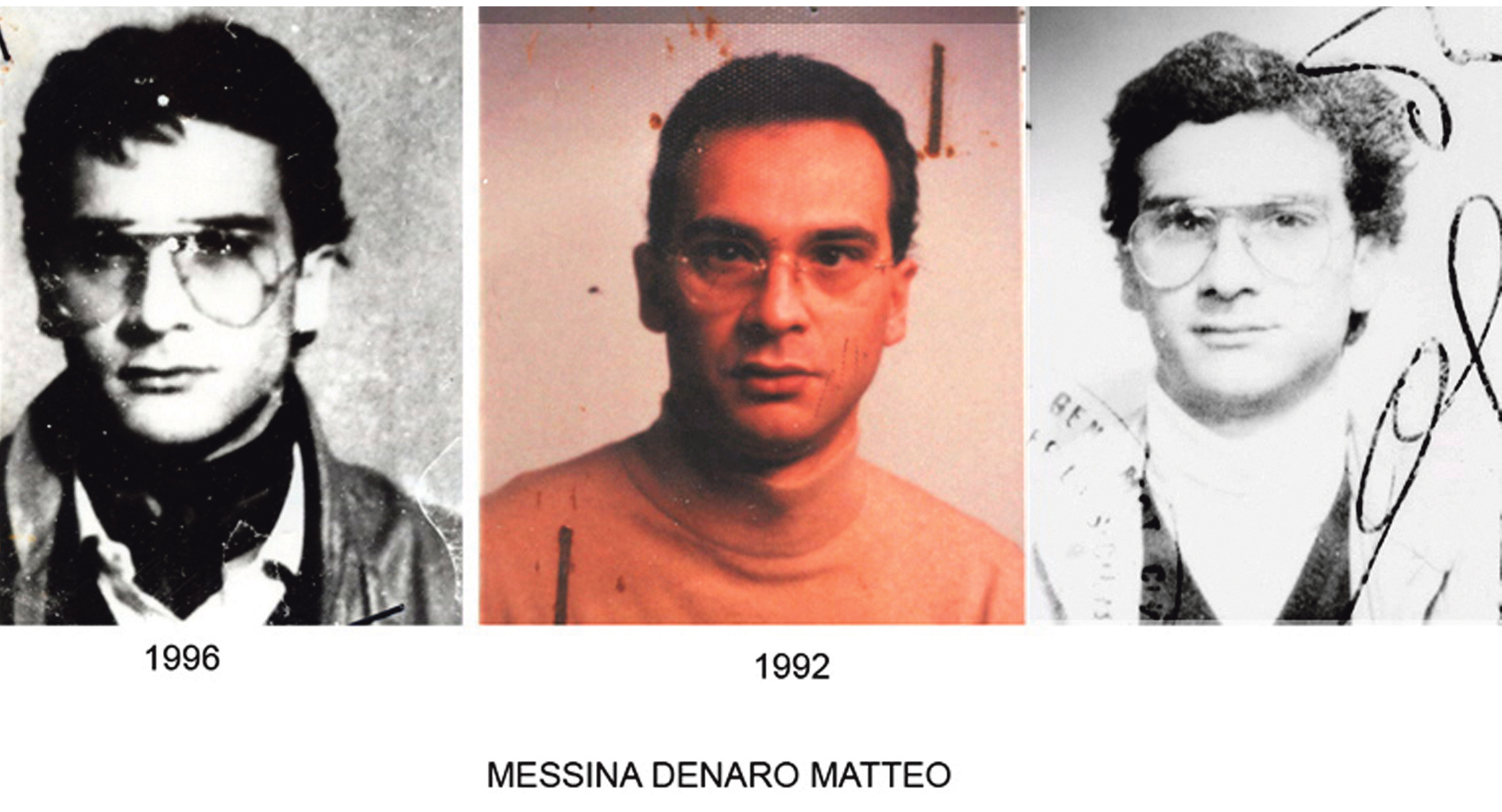
Three images of the Italian Mafia boss Matteo Messina Denaro, which were shown during an Italian Police press conference in Palermo, Sicily Island, Italy, on 6 April 2007. (Photo: EPA / FRANCO LANNINO)

Alleged Italian Mafia member Vito Roberto Palazzolo is escorted by Thai prison officers as he arrives for his extradition hearing at the Criminal Court in Bangkok, Thailand, 20 December 2012. (Photo: EPA / NARONG SANGNAK)
Detaining the Don
On 16 January, police in Italy announced a massive breakthrough – they had arrested Denaro, who was one of their most wanted targets and had been on the run for about three decades.
By that point, Denaro had already been convicted and sentenced to life imprisonment, in absentia, in connection with a string of crimes, including the 1992 assassinations of anti-Mafia prosecutors Giovanni Falcone and Paolo Borsellino.
Explosives were used to eliminate them, in separate incidents, while they were travelling in cars.
(Back in 1985, Falcone issued an arrest warrant for Palazzolo, who that year was sentenced to three years in jail in Switzerland – he later headed to South Africa – relating to his control of bank accounts linked to heroin sales.)
With Denaro in custody, questions have arisen about what will now happen to Cosa Nostra.
The long arm of Italian law enforcement that caught Denaro has also dredged up decades-old suspicions (which some former cops will undoubtedly insist are factual) of Cosa Nostra activities in South Africa.
A chapter of the book Clash of the Cartels: Unmasking the Global Drug Kingpins Stalking South Africa details several suspicions about Cosa Nostra and how it was believed that a few decades ago harsher police action in Italy saw mafiosos fleeing to other countries.
‘Cosa Nostra in SA’
In the 1990s, some police officers in South Africa suspected that several Cosa Nostra members had set up shop in this country and had local thugs, some of them based in Cape Town, acting as their foot soldiers.
According to the 1997 SAPS document that named Palazzolo as a suspect, other alleged mafiosos who “form[ed] the nucleus of Cosa Nostra in South Africa” included Mariano Troia, who was arrested in Palermo in 1998. (Troia died in 2010.)
Another was Giovanni Bonomo, who was arrested at an airport in Italy in 2003. (He also apparently died in 2010.)
Among the local figures with suspected Mafia links was nightclub security boss and rumoured intelligence agent Cyril Beeka. (He was assassinated in Cape Town in 2011.)
Mafia henchmen
In the 1990s, Beeka ran a company called Pro Security, which some cop investigators said was simply a guise for an extortion racket and a front to mask the activities of apartheid-era cops.
The SAPS document said Pro Security “consists of one hundred and twenty members comprising … South Africans, Moroccans, Russians, German[s] and French…
“Beeka, together with his staff at Pro Security, [fulfil] the role of soldiers for the criminal organisation Cosa Nostra.”
It said the group was responsible for crimes including extortion, prostitution, drug distribution and firearm smuggling.
These crimes are still prevalent in South Africa.
State Capture and corruption
Deep suspicions of Mafia activities in South Africa back in the 1990s erupted into a national scandal involving elements of what is now known as State Capture.
South Africa’s first democratically elected president, Nelson Mandela, appointed a police officer at the time, Andre Lincoln, to investigate suspicions of high-level crime.
Court papers dated 2020, relating to legal issues Lincoln faced, later stated: “During 1996, Lincoln received information relating to Mr Vito Palazzolo, allegedly a highly placed member of the Italian Mafia, who was resident in Cape Town.
“It suggested the existence of mutually beneficial and corrupt relationships between him and a high-ranking officer in the SAPS, and also a Minister in the National Cabinet.”
Lincoln and a team investigated links between corrupt colleagues, South African politicians and top-tier international crooks – suspected mafiosos included.
But Lincoln was instead accused of crimes, forced out of the cop service and later, after much legal wrangling to try to prove his innocence, reinstated.
Lincoln’s take on the situation was that fellow apartheid-era cops effectively set him up to thwart investigations he was conducting and that were leading back to the state.
Travel in Thailand and jail in Italy
Fast-forward to 2009.
Palazzolo, who also goes by the name Robert von Palace Kolbatschenko, was still based in South Africa and sentenced in Italy, in absentia, to nine years in jail relating to Mafia association.
His birth country wanted him extradited.
In 2012, Palazzolo was arrested while he was travelling in Thailand, and the following year he was sent to Italy to serve the jail sentence he faced.
A few years later, in 2018, Palazzolo was reclassified in Italy from “Mafia” to a “common” individual and in 2019 he was released from custody.
Red flags
In October 2021, DM168 revealed how Palazzolo, after his release from jail in Italy, had visited South Africa.
But he had problems, apparently because his South African passport was red-flagged.
Palazzolo said his travels were made difficult because the Department of Home Affairs deemed him a known fugitive from justice and had declared him a “prohibited person” (someone who is indefinitely banned from entering South Africa).
But Home Affairs strangely told DM168 it had no record of Palazzolo, under the Von Palace Kolbatschenko name, applying for this status to be lifted, even though court documents suggest he did.
’Ndrangheta’s global grip’
While suspicions, assassinations and arrests relating to Cosa Nostra have unfolded over the years, another Mafia group stemming from Italy may have crept closer to, and into, South Africa.
The Calabria-based ’Ndrangheta is said to be a bigger threat than Cosa Nostra.
DM168 understands the ’Ndrangheta may work with another of the world’s most powerful criminal gangs, Brazil’s Primeiro Comando da Capital, or First Capital Command, to smuggle mass drug consignments via ports including Durban Harbour.
“The ’Ndrangheta is one of the most extensive and powerful criminal organisations in the world…” according to international police organisation Interpol.
“It has expanded around the world and continues to grow at a steady rate. Today, the ’Ndrangheta is considered the only Italian Mafia organisation present on every world continent.” DM168
This story first appeared in our weekly Daily Maverick 168 newspaper, which is available countrywide for R25.
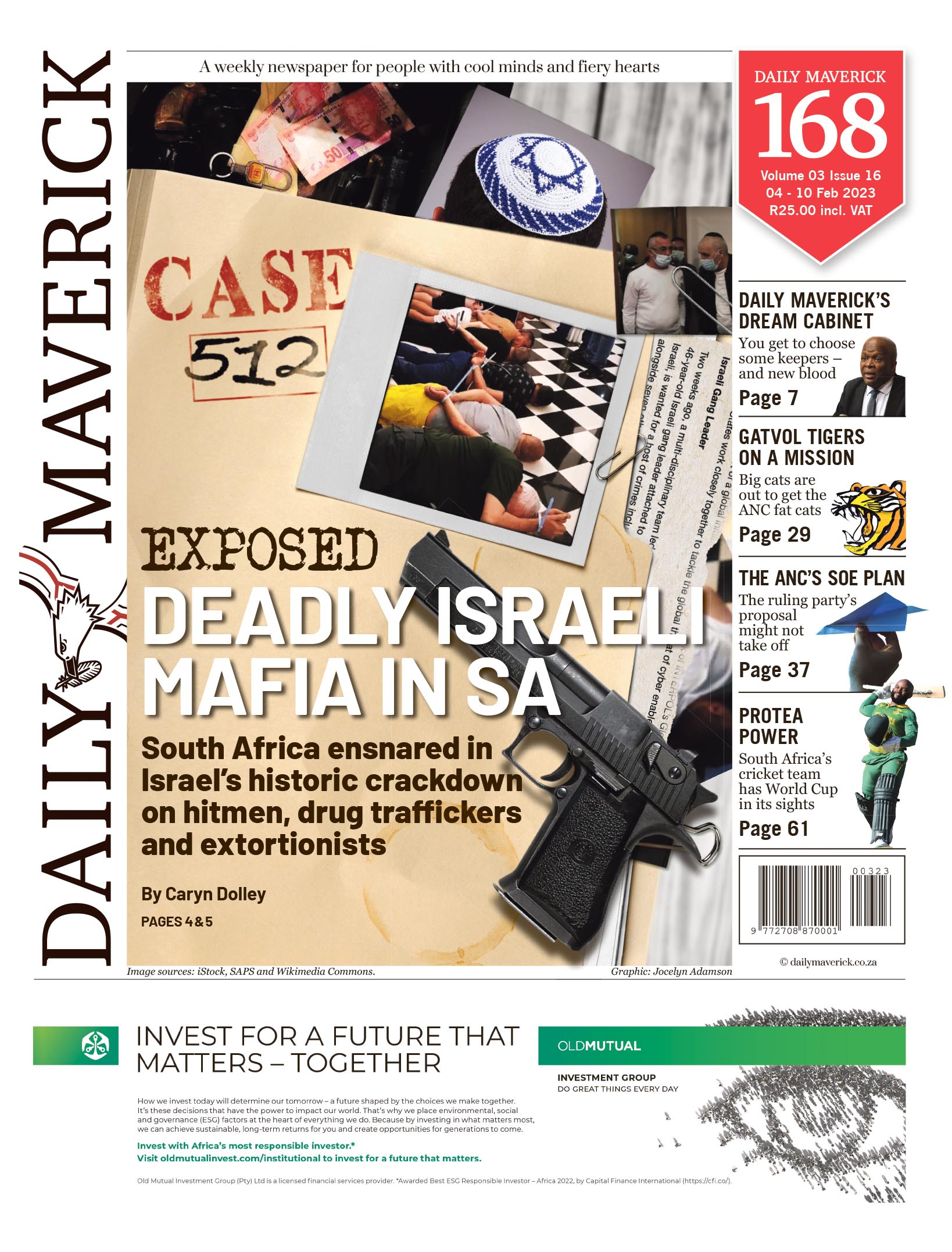





















 Become an Insider
Become an Insider
And coincidence,the 400 kg of cocaine that was moved via boat and netted quite a few arrestees from Somerset west and Strand ,the leader was Israeli,that got away.